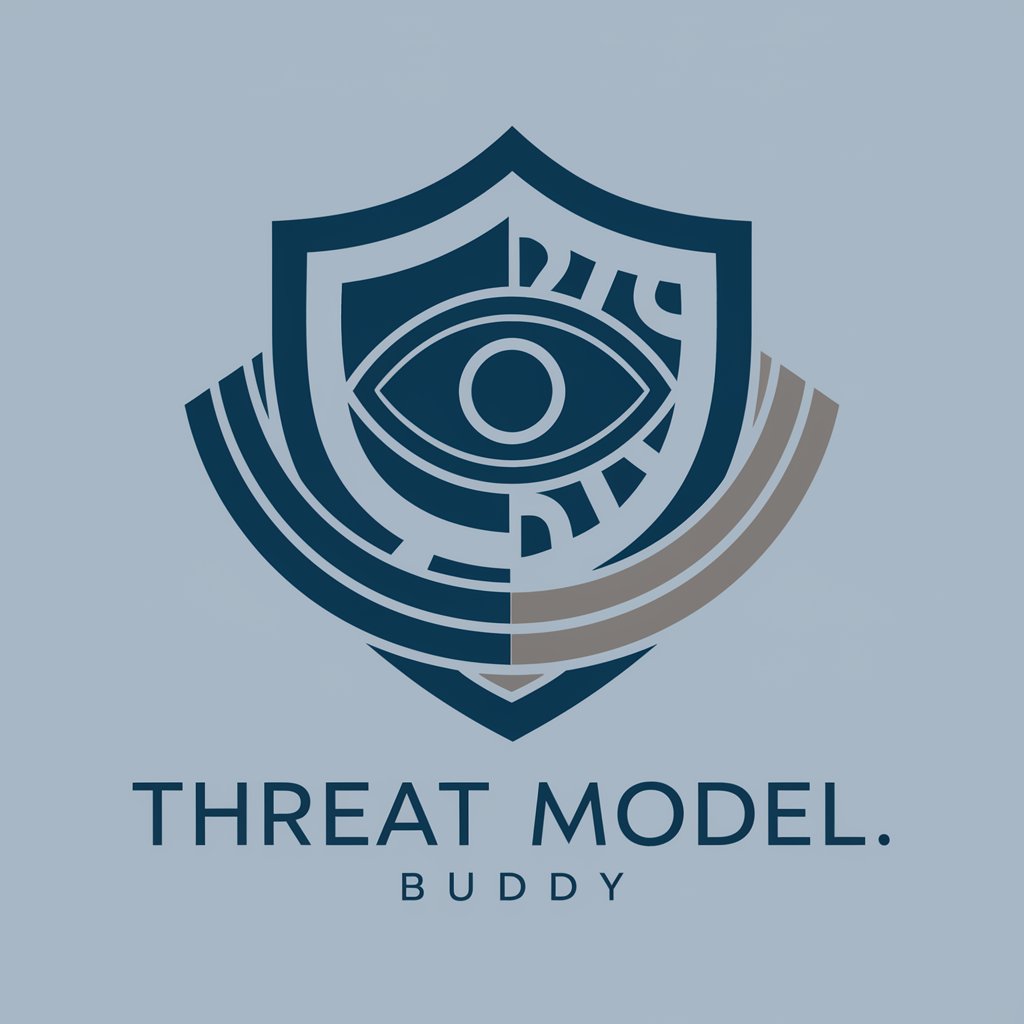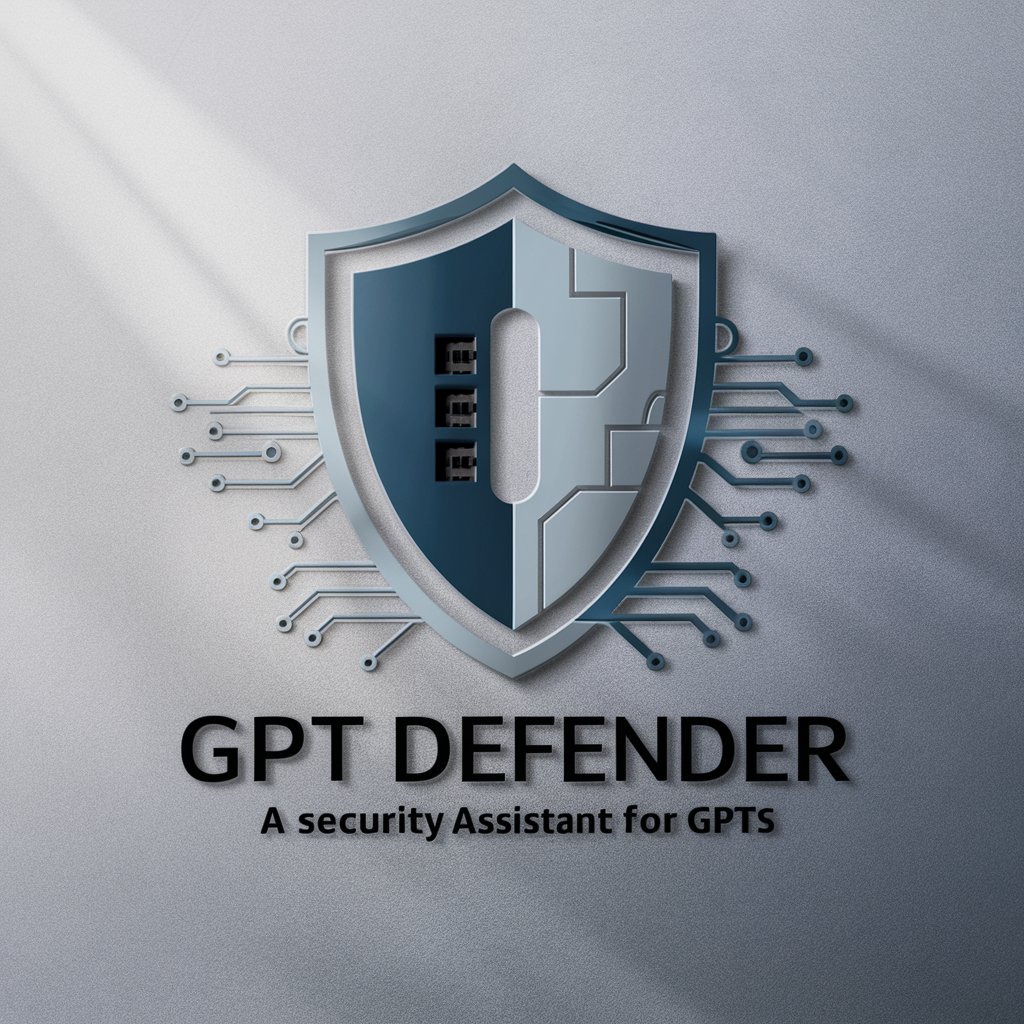7 GPTs for Security Evaluation Powered by AI for Free of 2026
AI GPTs for Security Evaluation are advanced tools designed to leverage the capabilities of Generative Pre-trained Transformers (GPTs) in the domain of security analysis and threat assessment. These tools utilize the vast knowledge and learning abilities of GPTs to identify, assess, and predict security vulnerabilities within various systems. By analyzing patterns, detecting anomalies, and understanding complex security protocols, AI GPTs offer tailored solutions for enhancing cybersecurity measures, making them invaluable for preemptive security planning and response strategies.
Top 7 GPTs for Security Evaluation are: GPT White Hack,Threat Model Buddy,GPT Defender,Test Architect Pro,Chrome Extension Analyst,CryptoHunterLvL9000,QA Test Plan Creator
GPT White Hack
Fortifying AI with Advanced Security

Threat Model Buddy
AI-Powered Cybersecurity Threat Modeling

GPT Defender
Fortifying AI with Advanced Security

Test Architect Pro
Empowering Testing with AI

Chrome Extension Analyst
Unveil Chrome Extension Secrets with AI

CryptoHunterLvL9000
Empowering Crypto Analysis with AI

QA Test Plan Creator
Automating Test Plans with AI

Distinctive Attributes and Capabilities
AI GPTs for Security Evaluation are equipped with several unique features that make them particularly effective in the security domain. These include advanced natural language processing for understanding and generating security-related content, machine learning algorithms for predictive threat analysis, and adaptability to various cybersecurity contexts. Special features may encompass real-time web searching for the latest security threats, image analysis for phishing detection, and customizable data analysis tools for in-depth security audits. Their versatility allows for both automated and manual customization, catering to a wide range of security evaluation tasks.
Who Benefits from Security Evaluation AI?
The primary users of AI GPTs for Security Evaluation include cybersecurity novices seeking foundational knowledge, developers integrating security features into applications, and professionals conducting sophisticated security analyses. These tools are designed to be accessible to users without extensive coding skills, offering intuitive interfaces and guided operations. Simultaneously, they provide advanced customization options for users with programming backgrounds, allowing for the development of specialized security evaluation protocols.
Try Our other AI GPTs tools for Free
Vulnerability Testing
Discover how AI GPTs for Vulnerability Testing revolutionize cybersecurity with automated, intelligent solutions for detecting and mitigating vulnerabilities.
Big Data Analytics
Explore the power of AI GPTs for Big Data Analytics, advanced tools designed to transform data into actionable insights with ease.
Educational Challenges
Explore how AI GPTs are transforming education with adaptable solutions for learning, teaching, and administration, making personalized education accessible to all.
Character Interaction
Discover AI GPT tools tailored for Character Interaction, designed to bring your favorite characters to life through engaging dialogues and personalized experiences.
Music Discussion
Explore the world of music with AI-powered GPTs designed for enriching music discussions, accessible to both enthusiasts and professionals alike.
Persona Roleplay
Explore the world of AI GPTs for Persona Roleplay: innovative tools designed to create immersive, interactive simulations of personalities and characters. Perfect for storytelling, training, and more.
Expanding the Horizon of Security Evaluation
AI GPTs for Security Evaluation represent a significant advancement in cybersecurity technology. Their ability to learn and adapt makes them particularly effective for a wide range of security challenges. Furthermore, the integration of these AI tools into existing systems or workflows can streamline security evaluation processes, making cybersecurity more accessible and effective for organizations of all sizes. Their user-friendly interfaces ensure that even those with minimal technical expertise can benefit from advanced security analysis capabilities.
Frequently Asked Questions
What exactly are AI GPTs for Security Evaluation?
AI GPTs for Security Evaluation are specialized AI tools that apply the capabilities of Generative Pre-trained Transformers to the field of cybersecurity, offering solutions for threat detection, analysis, and prediction.
How do these tools adapt to different security needs?
These tools use machine learning to tailor their functions to specific security contexts, learning from patterns of threats and adapting their analysis and predictions accordingly.
Can non-technical users operate these AI GPTs effectively?
Yes, these tools are designed with user-friendly interfaces that guide non-technical users through security evaluations, making advanced cybersecurity analysis accessible to all.
What makes AI GPTs different from traditional security tools?
AI GPTs incorporate advanced AI and machine learning, offering predictive threat analysis, natural language processing, and adaptability, which are not typically found in conventional security tools.
Are these tools customizable for specific security protocols?
Absolutely, users with programming skills can customize these AI GPTs to adhere to specific security protocols and requirements, enhancing their utility in specialized environments.
Do AI GPTs for Security Evaluation require constant internet access?
While some features like real-time threat intelligence may require internet access, many functions can be performed offline, depending on the specific tool and task.
How do these AI tools stay updated with the latest security threats?
These tools frequently update their knowledge bases through continuous learning and web searching capabilities, ensuring they remain informed about the latest security threats and trends.
Can AI GPTs predict future security threats?
Yes, by analyzing past and current security data, AI GPTs can predict potential future threats, allowing organizations to take preemptive measures.